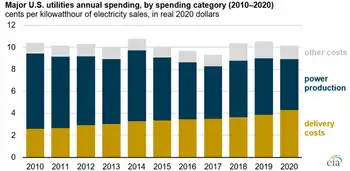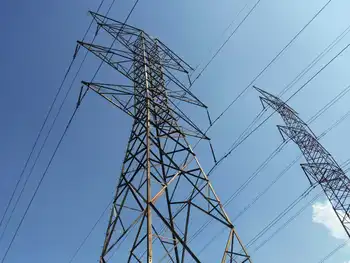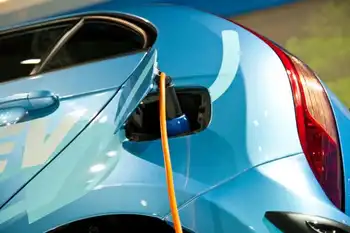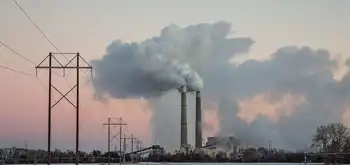Power line a landmark investment: U.S.
By New Brunswick Business Journal
NFPA 70e Training - Arc Flash
Our customized live online or in‑person group training can be delivered to your staff at your location.

- Live Online
- 6 hours Instructor-led
- Group Training Available
And support for the plan, a 1,200- to 1,400-megawatt transmission line between Quebec and southern New Hampshire, was pledged by the woman who heads the U.S. Federal Energy Regulatory Commission - which must approve such investments.
Commissioner Suedeen Kelly, in a keynote address to more than 200 energy executives, policymakers and regulators at an industry conference, offered praise for the Hydro-Québec plan to build the cross-border power line.
"Earlier this year Northeast Utilities and NSTAR Electric Co. petitioned for a declaratory order to approve the structure of their project," she said of the two New England utilities working with the Quebec hydroelectric company.
"It was an order to approve the transaction between them and HQ Energy Services U.S.
"The project involves 1,200 megawatts of HVDC transmission line extending from Quebec to southern New Hampshire," Kelly said.
"And this would be able to provide New England with a significant amount of Canadian hydro. Again, a significant strategic development for New England that will increase the diversity of supply of their electricity generation," she added.
"It will also potentially lower the price of electricity in New England."
In a panel discussion at the conference, hosted by the New England-Canada Business Council, executives at HQ Energy Services U.S. and Northeast Utilities further spelled out the plan's merits.
Jim Robb, senior vice-president of enterprise planning and development for Northeast Utilities, told the audience the power line will represent a "landmark" transmission deal - the first privately funded tie in the region.
He said the utilities "cut through" the regulatory burden of applying to have the costs of the line socialized and Hydro-Québec committed to pony up the cash on its own.
"They can finance these projects off their balance sheet," Robb said. Hydro-Québec has annual revenues in the order of $12.5 billion with a net income of $3.1 billion and assets worth $66.8 billion.
Since the line will be participant-funded, rather than covered by ratepayers, other power firms won't be allowed to access the transmission - a sticking point for such industry groups as the New England Power Generators Association, which has spoken out against the deal.
In May, the federal energy regulator approved the project's financing; final approval has to be given by ISO New England, which controls the power grid locally.
By 2011, the companies hope to have construction underway with a target date for completion in 2014 or 2015.
New England has supported the power line in part so far because it would mean clean power would flow to the U.S. states in the region.
Robb estimates New England could meet one third of its Regional Greenhouse Gas Initiative commitments with the hydroelectric power Hydro-Québec could pump through the line, alone.
Christian Brosseau, president of HQ Energy Services U.S., said the "beauty" of the transmission project is that it will have no impact on the customers of New England.
"Customers will not pay directly or indirectly for the transmission costs," he said.











